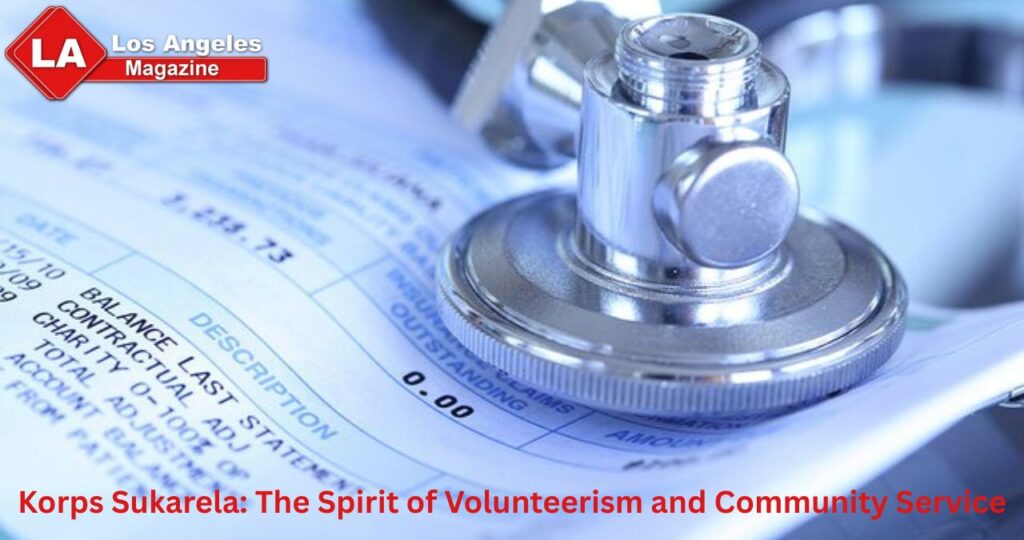Volunteerism has long been a vital element of social development and community cohesion worldwide. Among various volunteer organizations, Korps Sukarela (KSR) holds a unique and prominent place, especially in countries like Indonesia and Malaysia, where it plays a crucial role in fostering social responsibility, emergency response, and youth empowerment. The phrase Korps Sukarela translates to “Volunteer Corps,” representing groups of dedicated individuals committed to voluntary service in diverse fields such as disaster relief, healthcare, social welfare, and public safety. This article explores the significance of Korps Sukarela, its historical background, roles and responsibilities, benefits, and how it contributes to nation-building and community development.
Understanding Korps Sukarela
Korps Sukarela refers to organized volunteer groups that mobilize citizens, often youths, to participate actively in community service and humanitarian efforts. These corps can be found embedded within educational institutions, government agencies, or independent organizations, and they often operate under formal regulations that define their duties, training, and deployment protocols.
In Indonesia, for example, Korps Sukarela Palang Merah Indonesia (KSR PMI) is an essential volunteer wing of the Indonesian Red Cross Society. This corps engages volunteers who undergo rigorous training in first aid, disaster preparedness, and emergency response. Similarly, in Malaysia, the Korps Sukarela Polis refers to the Police Volunteer Reserve, which supports law enforcement agencies in maintaining public order and assisting during emergencies.
Historical Background
The concept of volunteer corps like Korps Sukarela traces back to the early 20th century, where community resilience and solidarity became critical, especially during times of conflict and natural disasters. As nations recognized the importance of grassroots involvement in public safety and welfare, formal volunteer organizations began to take shape.
In Indonesia, the formal establishment of the KSR PMI occurred after World War II, as the nation rebuilt and sought to improve healthcare and disaster response systems. Volunteers were seen as an indispensable resource to bridge gaps in medical services and social support, especially in remote and underserved areas.
In Malaysia, the idea of voluntary police forces dates to the British colonial period when local auxiliary units supported the main police forces. Over time, this evolved into a formal reserve volunteer police corps that helps bolster security capacity.
Roles and Responsibilities of Korps Sukarela
The duties of Korps Sukarela volunteers are diverse and often context-specific, but generally include the following:
- Disaster Relief and Emergency Response
Volunteers in Korps Sukarela are often the first responders in times of natural disasters such as floods, earthquakes, or fires. Their responsibilities include rescuing victims, providing first aid, distributing relief supplies, and assisting in evacuation efforts. Their training equips them to act swiftly and effectively, often saving lives and mitigating damage. - Healthcare and First Aid
Many KSR units focus on health-related services, offering first aid at public events, conducting blood donation drives, and educating communities on hygiene and disease prevention. They also support hospitals and clinics by assisting with patient care during crises or overcrowded periods. - Community Service and Social Welfare
Beyond emergencies, Korps Sukarela engages in various community projects such as environmental conservation, education campaigns, and helping vulnerable groups like the elderly, orphans, and persons with disabilities. These activities foster social solidarity and improve the overall quality of life in communities. - Support to Government Agencies
In some countries, Korps Sukarela volunteers work closely with police, fire departments, or civil defense forces. They provide manpower during large-scale public events, traffic control, crowd management, and other security operations. - Youth Development and Leadership Training
One of the key functions of Korps Sukarela is youth engagement. By joining these volunteer corps, young people gain leadership skills, discipline, and a sense of civic responsibility. Training programs often include teamwork exercises, communication skills, and practical knowledge applicable in various professions.
The Training and Recruitment Process
Joining a Korps Sukarela usually requires candidates to undergo a selection process and training. Training programs cover essential topics like first aid, disaster management, safety protocols, and community outreach techniques. For example, members of KSR PMI learn how to perform CPR, manage emergency shelters, and conduct risk assessments.
The recruitment criteria often emphasize physical fitness, willingness to serve, and commitment to volunteerism. Many corps recruit from high schools, universities, and communities, encouraging widespread participation across age groups and backgrounds.
Benefits of Korps Sukarela
- Community Resilience and Safety
By having trained volunteers ready to assist in emergencies, communities become more resilient and better prepared to handle crises. Korps Sukarela acts as a supplementary force to official emergency services, enabling faster response times and broader coverage. - Youth Empowerment
Korps Sukarela offers young people an avenue for meaningful engagement outside academic settings. It instills values such as empathy, teamwork, and leadership, which are valuable life skills that contribute to personal and professional growth. - Social Cohesion
Volunteer corps foster unity and cooperation among community members, breaking down social barriers and building trust. The shared experience of volunteering creates networks of support that strengthen the social fabric. - Career Opportunities
Experience gained through Korps Sukarela can open doors to careers in healthcare, emergency services, social work, and public administration. Many former volunteers pursue professions related to their volunteer training, enhancing their employability. - National Development
By complementing government efforts in public health, safety, and disaster management, Korps Sukarela contributes significantly to national development goals. Their efforts ensure that vulnerable populations receive assistance, promoting equitable growth.
Challenges Faced by Korps Sukarela
Despite its many advantages, Korps Sukarela faces several challenges:
- Funding and Resources: Many volunteer corps depend heavily on donations and government grants. Limited funds can restrict training quality and operational capacity.
- Volunteer Retention: Maintaining volunteer motivation over time can be difficult, especially when faced with challenging or dangerous tasks without adequate support.
- Coordination with Authorities: Effective collaboration between volunteer corps and official agencies is vital but sometimes complicated by bureaucratic hurdles or unclear command structures.
- Awareness and Recruitment: Ensuring continuous recruitment and raising public awareness about the importance of volunteerism remains a challenge in some areas.
How to Get Involved with Korps Sukarela
For those inspired to join a Korps Sukarela, the first step is to contact local volunteer organizations or chapters affiliated with national bodies like the Red Cross or police volunteer reserves. Participation typically requires:
- Commitment to volunteer regularly
- Completing required training and certifications
- Upholding the code of conduct and ethical standards
- Willingness to serve during emergencies and community programs
Volunteering with Korps Sukarela is a rewarding experience that not only benefits the community but also enriches the personal lives of the volunteers.
Conclusion
Korps Sukarela embodies the true spirit of volunteerism — selfless service for the betterment of society. Through their dedication, training, and compassion, these volunteer corps play an indispensable role in enhancing community resilience, delivering healthcare, supporting emergency responses, and empowering youth. While challenges exist, the impact of Korps Sukarela on national development and social welfare is undeniable. As the world faces increasingly complex challenges such as climate change, pandemics, and urbanization, the role of volunteer corps like Korps Sukarela becomes ever more crucial. By promoting awareness and participation in such corps, societies can build stronger, safer, and more caring communities for the future.



